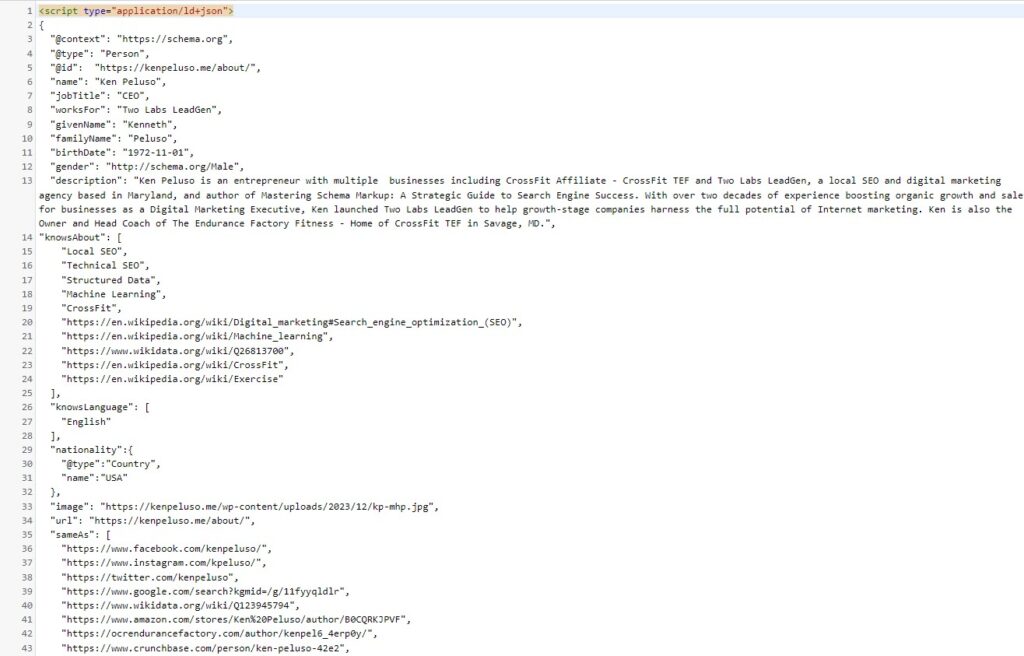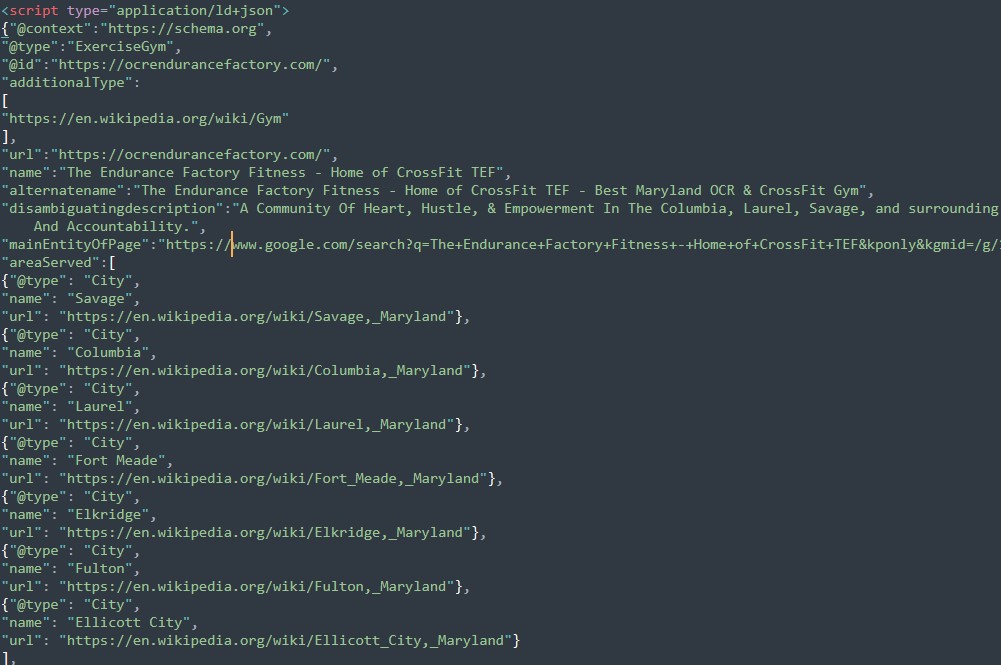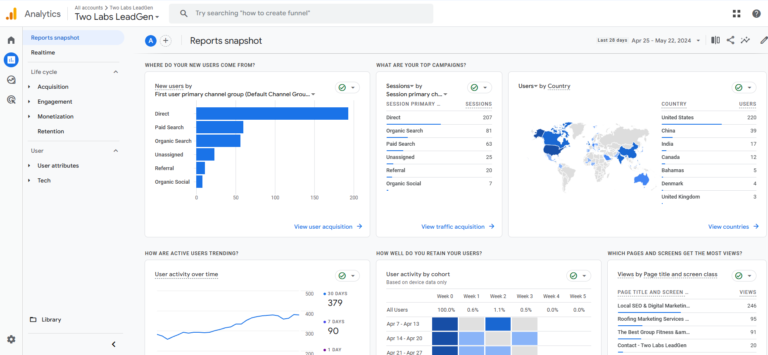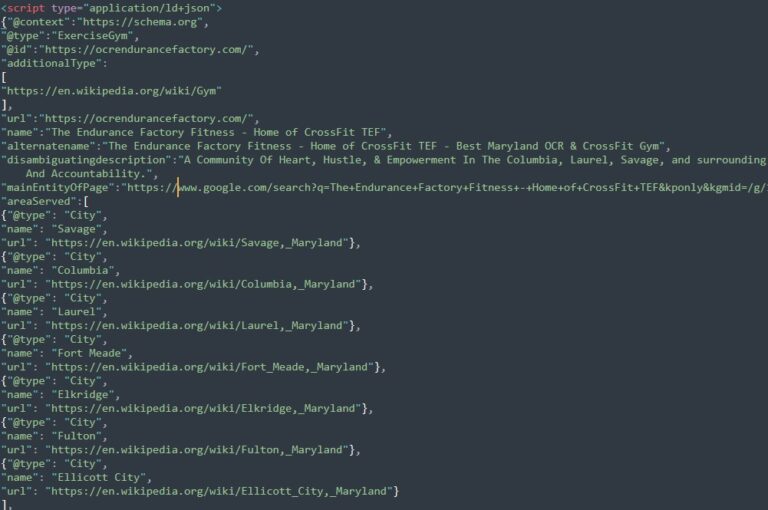Table of Contents
ToggleUnderstanding this aspect of SEO will help you optimize your content and enhance the visibility and credibility of your authors in search results. Many SEO professionals and website owners may be unfamiliar with Author Schema Markup and its impact on search engine rankings. In this informative guide, we will research into the basics of Author Schema Markup, why it is important for establishing trustworthiness and authority, and how to properly implement it on your website.
Key Takeaways:
- Author Schema Markup: Provides a standard way to add author data to web pages, improving search engine recognition of author authority.
- Benefits of Author Schema: Enhances search engine understanding, improves content trustworthiness, potentially increases CTR, connects with social media, and future-proofs content.
- Implementing Author Schema: Use tools like Yoast SEO, Schema Pro, or Google Structured Data to automate the process and ensure correct implementation.
Understanding Author Schema Markup
Structured data provides search engines with valuable information about the authorship of content, establishing credibility and authority. By utilizing Author Schema Markup, website owners can enhance the visibility and trustworthiness of their content, ultimately leading to improved search rankings.
Author Schema and Google Search Results
The inclusion of Author Schema data on a website can lead to the creation of rich snippets by search engines like Google. These rich snippets provide users with a summary of the author’s biographical information, social media profiles, and work details directly in the search results. By leveraging Author Schema Markup, website owners can ensure that search engines have access to relevant author information, contributing to a more comprehensive understanding of the author’s expertise and credibility.
Benefits of Implementing Author Schema Data
Schema Markup not only enhances the visibility of content but also plays a crucial role in improving content trustworthiness. By showcasing the expertise of authors through structured data, website owners can significantly boost the perceived quality and credibility of their content. This, in turn, leads to increased user trust and engagement, reinforcing the authority of the author and the website as a whole.
Core Components of Author Schema Markup
Defining Author Schema Markup
Schema Markup provides a standard way to add author data to any web page, allowing search engines and web crawlers to comprehend the author’s credentials. It is based on Schema.org’s definition and can be integrated via JSON or HTML properties into a website.
The Elements of Author Schema

Any web page can benefit from Author Schema Markup by including structured author metadata. This metadata typically includes the author’s name, job title, affiliation, image, and a brief bio, providing search engines with comprehensive details about the author’s expertise and credibility.
With the importance of trustworthiness and authority in search rankings, leveraging Author Schema Markup can enhance the visibility and credibility of content creators on websites, ultimately leading to more personalized and authoritative search experiences.
Supported Formats of Schema Markup
On web pages, Author Schema Markup can be implemented in various formats such as JSON-LD, inline Microdata, and linked data in RDFa. These formats enable web crawlers to easily understand structured data that highlights the author’s credentials, facilitating the evaluation of content credibility and expertise.
For instance, using tools like Yoast SEO for WordPress or Schema.org Metatag for Drupal can automate the addition of Author Schema Markup, streamlining the process for website owners and authors to enhance their content’s visibility and trustworthiness in search results.
Using and Implementing Author Schema Markup
How Author Schema Markup Works
With the use of Author Schema Markup, web crawlers like Google can better understand the structured data that is presented on a web page. This allows search engines to easily recognize the author of a piece of content based on the standardized format provided by the schema markup.
Implementing Author Schema Markup Manually
The markup for Author Schema can be added manually to a web page by including JSON-LD data within the HTML code. This structured data snippet contains necessary information about the article and author, such as the article title, description, author details, and publication dates. By embedding this metadata in the HTML code, search engines can efficiently gather the necessary information for ranking purposes.
Manually adding Author Schema Markup can be a bit technical, but it is necessary to ensure that the data is correctly formatted to provide search engines with the information needed to evaluate the credibility and authority of the author and content.
Tools and Resources for Implementing Author Schema
When implementing Author Schema Markup, various tools and resources are available to assist website owners and authors in automatically generating and embedding the structured data. Popular content management systems like WordPress offer plugins such as Yoast SEO, Schema Pro, and Rank Math SEO, which simplify the process of adding Author Schema Markup to web pages.
To ensure a seamless implementation of Author Schema Markup, website owners should choose the appropriate tools based on their CMS and technical requirements. These tools can streamline the process and help maintain the accuracy and effectiveness of the structured data across multiple pages on the website.
Best Practices for Implementing Author Schema Markup
When incorporating Author Schema Markup, it is important to follow best practices to maximize its benefits. Including all necessary properties such as the author’s name, job title, affiliation, and image can provide comprehensive information to search engines and enhance the visibility of the content. Integrating social media links using the sameAs property can further establish credibility and authority, improving the overall impact of the Author Schema Markup.

Website owners should regularly update their schema markup to align with Schema.org’s vocabulary changes and conduct spot-checks to ensure the structured data is correctly indexed. By adhering to best practices, authors and content creators can leverage Author Schema Markup to enhance trust, visibility, and engagement in search results.
Step-by-Step Guide to Adding Author Schema Markup
Preparing Your Markup
Keep your author schema markup structured and clear by following Schema.org’s guidelines. This ensures that search engines can easily understand and interpret the information you provide.
| Step | Actions |
| 1 | Identify the necessary properties to include for authors, such as their name, job title, affiliation, and relevant social media links. |
| 2 | Use JSON-LD format for author schema markup as recommended by Google for better indexing and understanding by search engines. |
Adding Markup to Your Website’s Pages
For instance, before adding author schema markup to your website’s pages, ensure that each author’s information is consistent and accurately represented across all content. This includes verifying the spelling of names, job titles, and ensuring that social media links are up to date.
Once you have prepared the necessary information, embed the JSON-LD code containing the author schema markup into the header section of your web pages. This will provide search engines with the structured data needed to recognize and display author information in search results.
Validating Your Markup With Google’s Tools
A crucial step after adding author schema markup to your website is to validate the structured data using Google’s Rich Results Test tool. This tool checks for errors and ensures that your markup is correctly implemented, increasing the chances of your author information being displayed as rich snippets in search results.
By regularly validating your author schema markup, you can stay informed about any issues or updates needed, maintaining the accuracy and visibility of author information on your website.
Advanced Author Schema Markup Techniques
Using @id Property To Connect Profiles In this advanced technique, utilizing the @id property within your author schema markup allows you to uniquely identify authors across multiple web pages. By assigning a specific ID to each author, you establish a clear connection between their profiles and contributions throughout your website. Incorporating SameAs Attribute for Verification With the SameAs attribute, you can link authors’ website profiles to their corresponding social media platforms, providing a verification mechanism for their online presence. This not only enhances the credibility of your authors but also helps search engines establish the authenticity of their online identities.
Using @id Property To Connect Profiles
With the usage of the @id property in your author schema markup, you can effectively associate authors with their unique identifiers across various pages on your website. This method ensures a seamless linking of author profiles, enabling search engines to recognize and differentiate individual contributors accurately.
Incorporating SameAs Attribute for Verification
Techniques utilizing the SameAs attribute in author schema markup play a crucial role in verifying authors’ identities by establishing connections between their website profiles and social media accounts. This verification mechanism not only enhances the credibility of authors but also strengthens the overall trustworthiness of your content in the eyes of search engines.
Optimizing Author Schema for Multiple Authors
With the optimization of author schema markup for multiple contributors, you can streamline the identification and attribution of content to respective authors seamlessly. By implementing structured data that distinguishes between multiple authors, you enhance the visibility and authority of each individual’s contributions, ultimately benefiting the overall search engine rankings of your website.
Troubleshooting Common Issues With Author Schema
Finding and Fixing Errors
Fixing errors in Author Schema Markup is crucial to ensure that search engines can properly understand and display the information. Common issues may include missing or incorrect data, which can lead to a lack of visibility in search results. By regularly auditing your Author Schema Markup, you can identify and address any errors efficiently.
Updating Information in Schema Markup
Issues with outdated or inaccurate information in Schema Markup can impact the credibility and relevance of your content. To ensure that your Author Schema Markup remains informative and up-to-date, it is vital to regularly review and update the information provided. This includes verifying author credentials, social media links, and other relevant details to maintain the accuracy of the structured data.
To effectively update the information in Schema Markup, consider establishing a process for verifying author credentials, updating social media profiles, and ensuring that any changes are reflected in the markup. By keeping the information current, you can enhance the credibility and trustworthiness of your content in the eyes of both search engines and users.
Handling Changes in Authorship
Common challenges arise when handling changes in authorship within Schema Markup. Whether authors leave your organization or new ones join, it is vital to update the structured data accordingly to reflect accurate author information. By promptly addressing these changes, you can maintain the integrity of your Author Schema Markup and ensure that search engines continue to recognize the authority of your content creators.
Schema Markup provides a standardized way to communicate authorship information to search engines, but it requires regular maintenance to remain effective. By proactively troubleshooting and resolving common issues with Author Schema Markup, you can optimize the visibility and credibility of your content in search results.
Measuring the Effectiveness of Author Schema Markup
Your website’s use of Author Schema Markup can have a significant impact on its performance in search engine results pages (SERPs). Analyzing the data and metrics related to your Author Schema implementation is crucial for understanding its effectiveness and making informed decisions to improve your SEO strategy.
Analyzing Performance in Search Engine Results Pages
Analyzing the performance of your Author Schema Markup in SERPs involves tracking key metrics such as click-through rates, visibility of author information in search results, and changes in rankings. By monitoring these metrics over time, you can assess the impact of Author Schema Markup on your website’s search performance and make necessary adjustments to optimize results.
Tools for Tracking Schema Markup Performance
Effective tools are available to help track the performance of your Author Schema Markup. Tools like Google Search Console and third-party SEO platforms offer insights into how your structured data is being displayed in search results and its effect on organic traffic. By utilizing these tools, you can gain valuable data to guide your SEO strategy and maximize the benefits of Author Schema Markup.
For a comprehensive analysis of your Author Schema Markup performance, consider using tools that offer detailed reports on click-through rates, keyword rankings, and user engagement metrics related to your authorship data. These insights will enable you to make data-driven decisions to enhance the visibility and impact of your content in search results.
Adjusting Strategies Based on Data Insights
To optimize the performance of your Author Schema Markup, it’s important to analyze the data insights gathered from tracking tools and adjust your strategies accordingly. By identifying trends, patterns, and areas for improvement in the performance of your authorship data, you can make informed decisions to enhance your website’s visibility and authority in search results.
Search engines like Google value high-quality, authoritative content, and using data insights from your Author Schema Markup can help you align your content strategy with search engine algorithms. By making strategic adjustments based on data analysis, you can improve the effectiveness of your Author Schema implementation and drive better results for your website.
Future Trends and Developments in Schema Markup
The Evolution of Search Algorithms and Schema Markup
Schema Markup has become increasingly important in the evolution of search algorithms, particularly with Google’s emphasis on trustworthiness and authority in rankings. As search engines continue to refine their algorithms and prioritize high-quality, credible content, Schema Markup will play a vital role in helping websites communicate key information to search engines effectively.
Anticipating Changes in Author Schema Requirements
On the horizon, we can anticipate potential changes in Author Schema requirements as search engines refine their algorithms to prioritize expertise, authoritativeness, and trustworthiness. Publishers and content creators should stay ahead of these changes by ensuring their Author Schema Markup is robust, accurate, and up-to-date to meet evolving search engine criteria.
Changes in the requirements for Author Schema may include additional data points, updated properties, or revised guidelines to ensure accuracy and relevance in search results. Publishers should be proactive in monitoring and adapting to these changes to maintain visibility and credibility in search rankings.
Keeping up with Schema.org Updates
Any changes or updates to the Schema.org vocabulary should be closely monitored by web developers and SEO professionals to ensure that their Schema Markup remains compliant and effective. Schema.org regularly updates its vocabulary to include new item types, properties, and adjustments, making it necessary for publishers to stay informed and implement these changes promptly.
Evolution in Schema Markup will continue to shape the way content is understood and displayed by search engines, highlighting the importance of ongoing monitoring and optimization to enhance visibility and engagement in search results. Staying abreast of Schema.org updates will be crucial for maintaining a competitive edge in the ever-evolving landscape of search engine optimization.
Summing up
Hence, understanding and implementing Author Schema Markup is crucial for improving the trustworthiness, visibility, and credibility of content on your website. By utilizing structured data to highlight author credentials and expertise, you can enhance search engine understanding, and content trustworthiness, and potentially increase click-through rates on search results. With the continued evolution of search engine algorithms and the rise of AI-generated content, Author Schema Markup will remain a key tool for SEO professionals and content marketers seeking to establish authority and relevance in the digital landscape.
FAQ
Q: What is author schema markup?
A: Author schema markup is a standardized way to add author data to a web page so that search engines and web crawlers can understand the author’s credentials and authority in relation to the content. It helps search engines evaluate content credibility based on the author’s expertise.
Q: Why is author schema markup important for SEO?
A: Author schema markup is crucial for SEO as it enhances search engines’ understanding of content context and authority. By identifying the author and showcasing their expertise, search engines can better evaluate the quality and trustworthiness of the content, leading to potential higher search result rankings.
Q: How can author schema markup benefit website owners and authors?
A: Author schema markup benefits website owners and authors by improving content trustworthiness, increasing search result click-through rates, enhancing social media connections, and future-proofing content against evolving search engine algorithms. It helps establish credibility and authority, leading to better visibility and engagement in search results.












